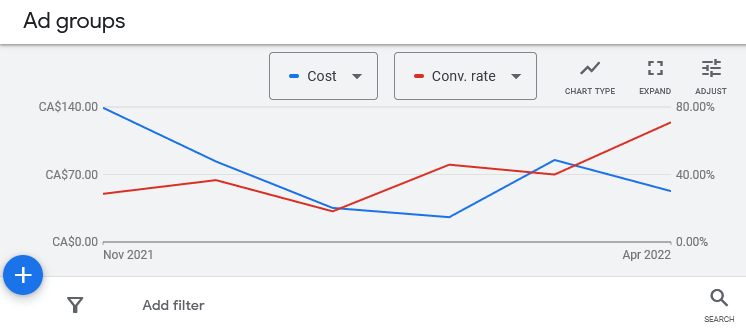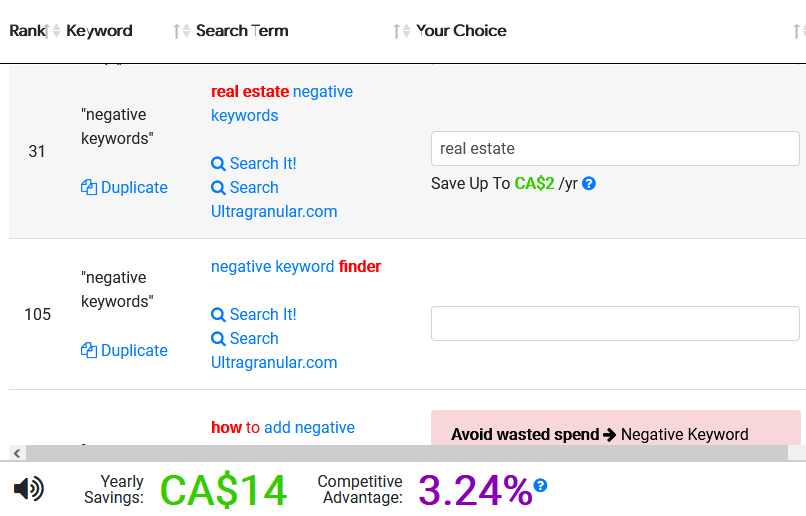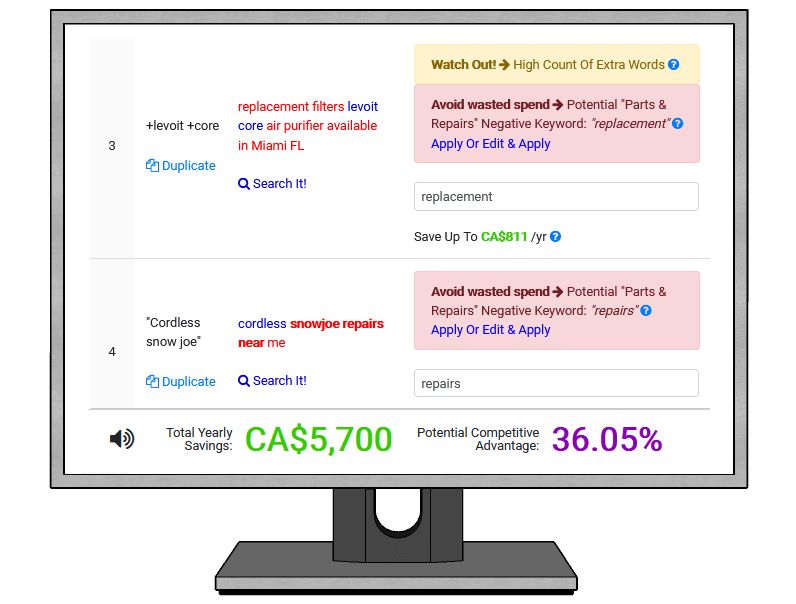
Plain and simply, boosting conversion rates is about increasing relevance. The more relevant your traffic, the more it converts. One way to do so is to write ads that appeal to the right audience, but the most neglected way, and also the most effective one in our opinion, is to regularly add negative keywords — to come back to your search term report every other week to find new irrelevant search terms and make them negative keywords.

We have seen that phenomenon on several Google Ads account, including lately in our own account (see illustration above) where we keep finding new totally irrelevant negative keywords months after having launched our campaign targeting keywords like “search term report” and “negative keywords.”
The conversion rate goes up for a simple and obvious reason: Some of the search terms we excluded were from people that were just not likely to ever use or even try UlgraGranular. One particular case, beginners looking for pre-made lists of negative keywords for specific markets like “real estate” or “cameras”:

We already know that people relying only on pre-made negative keyword lists are not our typical market (Our subscribers are mostly intermediary to advanced campaign managers and agencies who understand the value of regularly auditing their search term reports to find their own negative keywords) and will likely never convert. Therefore, excluding them removes non-converting people from our traffic, leaving a higher rate of converting people… which will inevitably increase our conversion rate.
The same can be said from other campaigns we examined:
- A bottle-filling company was getting traffic for “tire filling” equipment. Could never convert!
- A site selling dehumidifiers was getting traffic for “humidifiers” (Yes, so-called close variants are sometimes that crazy). Again, no chance to ever convert.
- A campaign selling self-empty robot vacuums (very expensive models that include an auto-empty base with a larger container) was getting traffic for people looking for cheap basic robot vacuums. How could it convert? And even if it did, at a much lower price point.
- An insurance SaaS company was getting tons of traffic for mortgage-related queries because the language is about the same: “risks,” “underwriting,” etc. Of course, mortgage searchers were infinitely less likely to convert because the SaaS in question is just for insurance!
That’s how working on negative keywords obviously increases your conversion rate. And if you are a pro campaign manager working to improve your clients actual results, this is good for you and good for them and it will look good on the report. If you are a self-advertiser, it will look good in your wallet.
Universal Negative Keyword Lists Are Not Enough
And don’t count on universal negative keyword lists you can find on the web. They are useful to get you started, but they are not enough. One of our clients started a campaign a year ago and took good care of adding classic negative lists about job seekers and troubleshooters, which both applied to their industry. Despite that, they are still finding new negative keywords every other week and, had they not regularly scrutinized their search terms, they would have never risen above their PPC competitors.
And what happens when your conversion rate keeps going up? You make more money for each click you pay for, so the natural reflex is to raise your bid, further distancing yourself from your competitors. That’s what we call the Alternating Stairway of PPC.
Wanna try it for yourself? Save yourself some hard work and try it with Ultragranular. Ultragranular can quickly scan 10,000 search terms (a task that would require hours with a spreadsheet) and show you the most important ones first, those more likely to require your attention. It’s a tremendous time saver and a game changer for search term auditing and negative keyword hunting.

Try it now for free, it’s addictive.